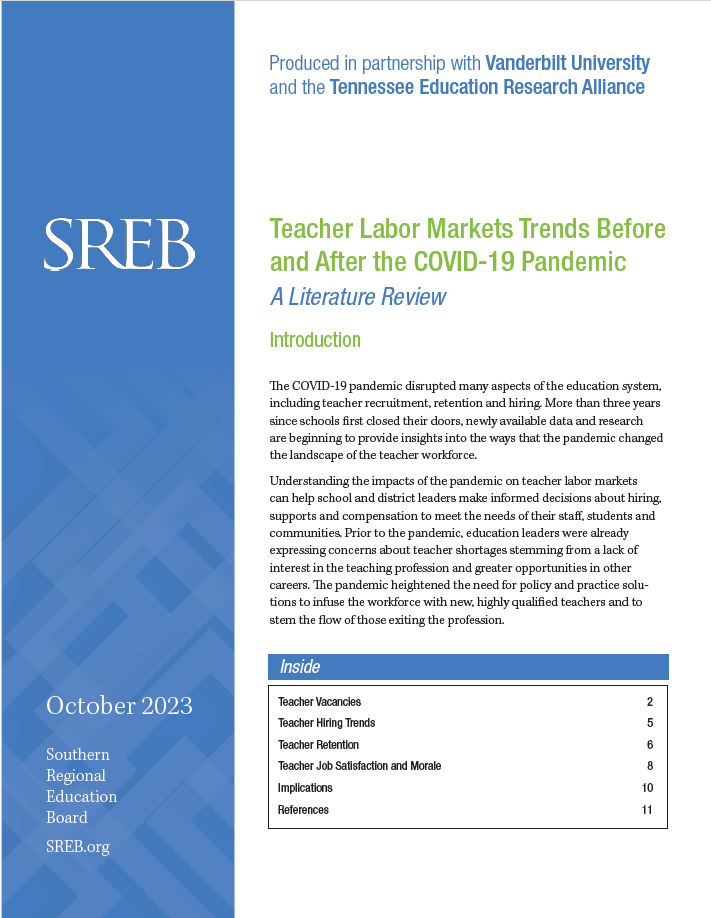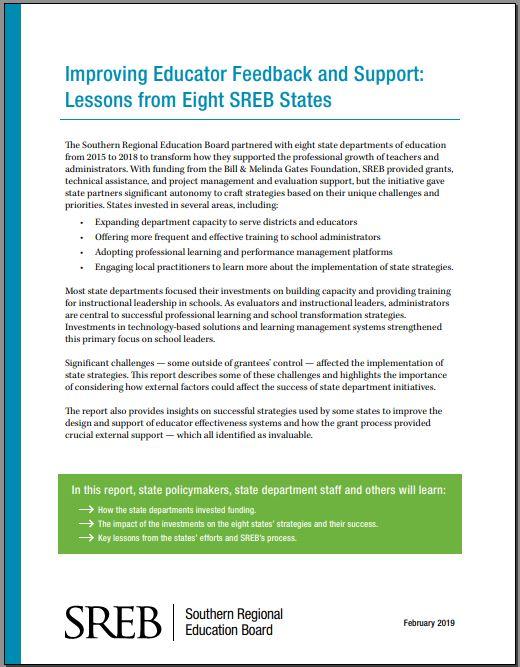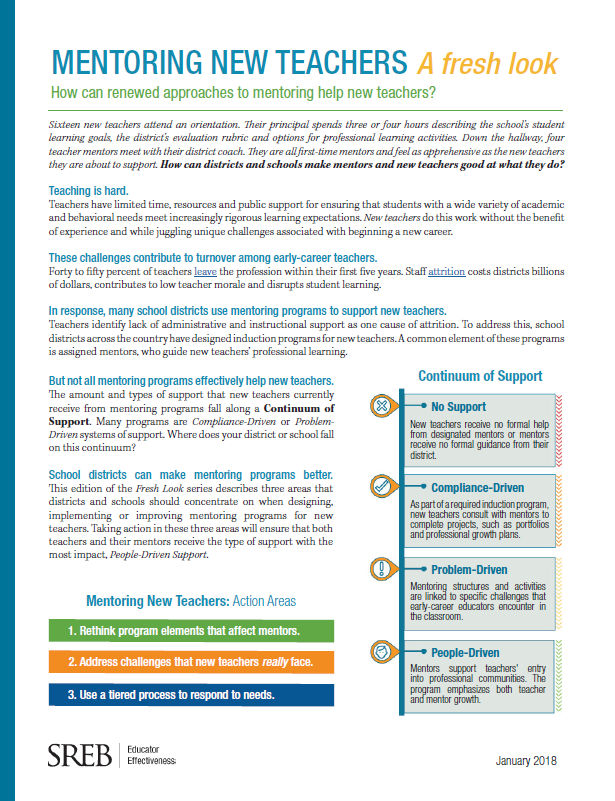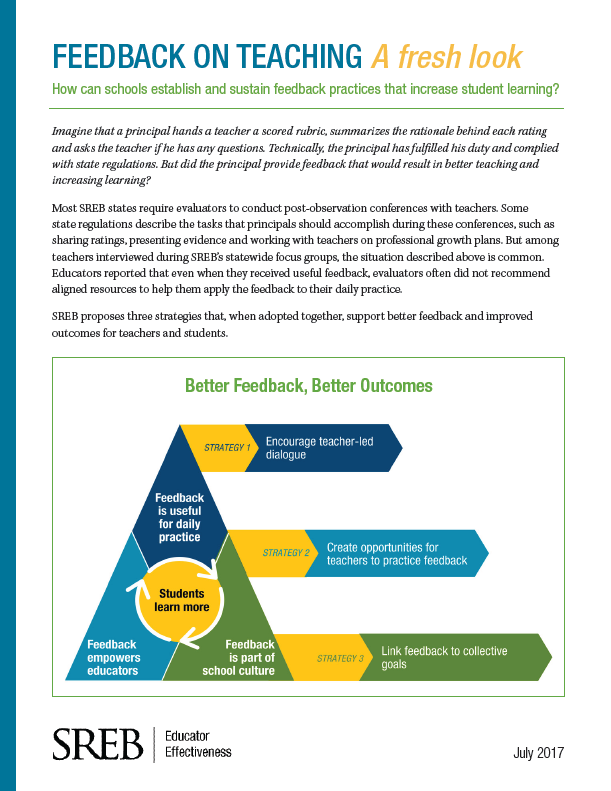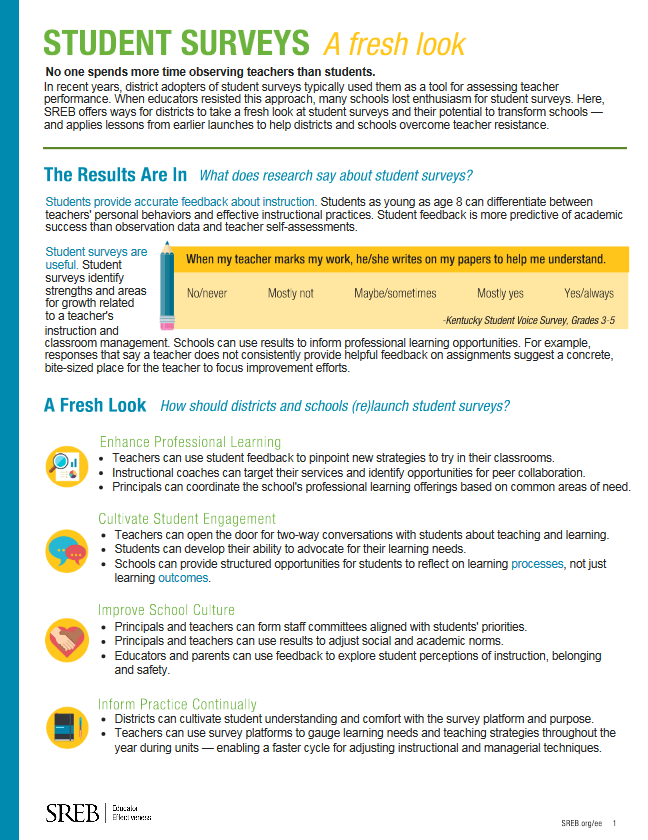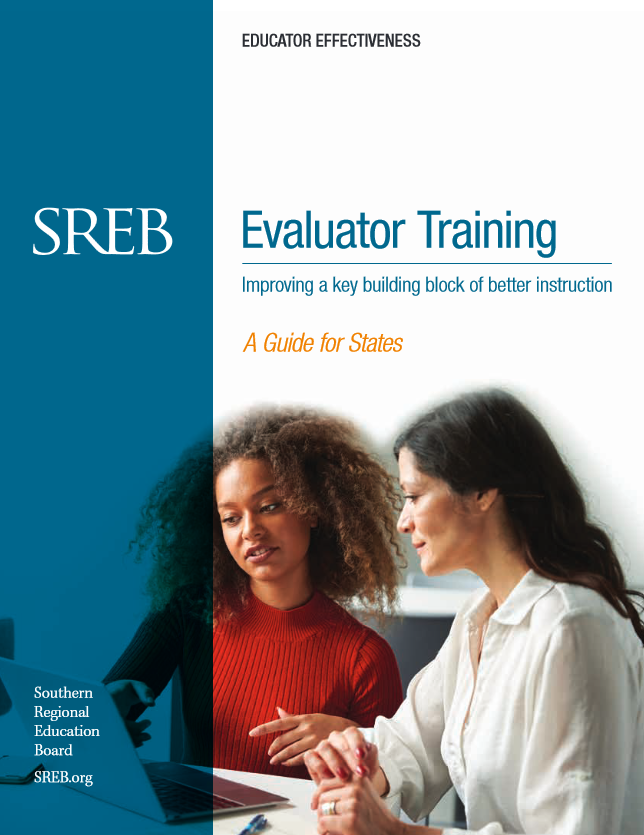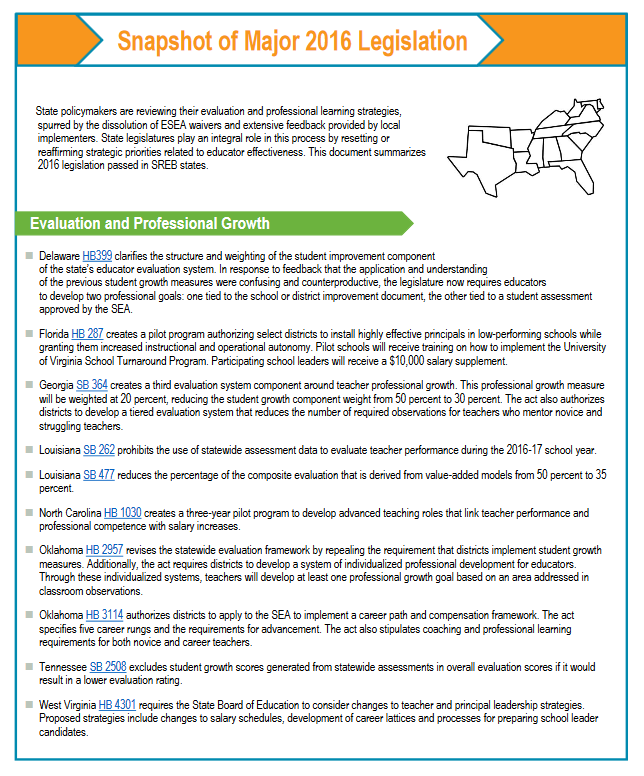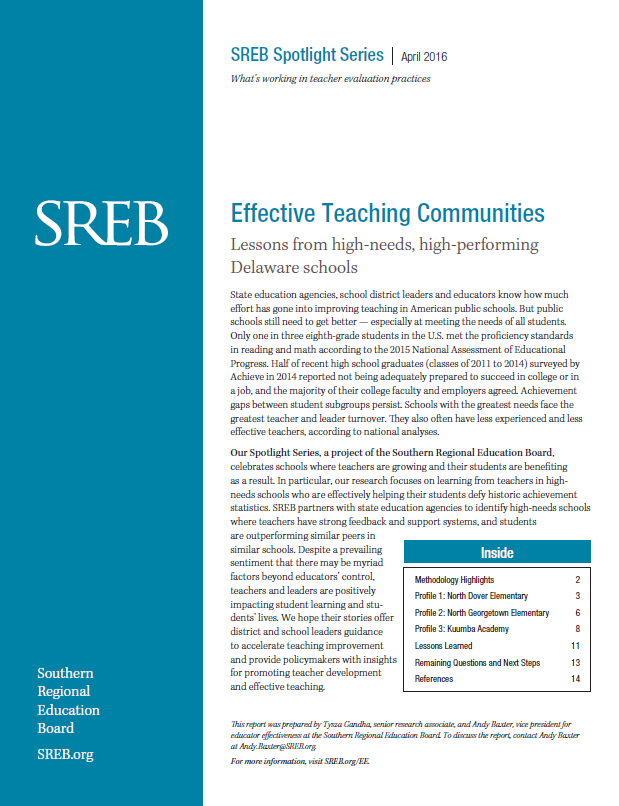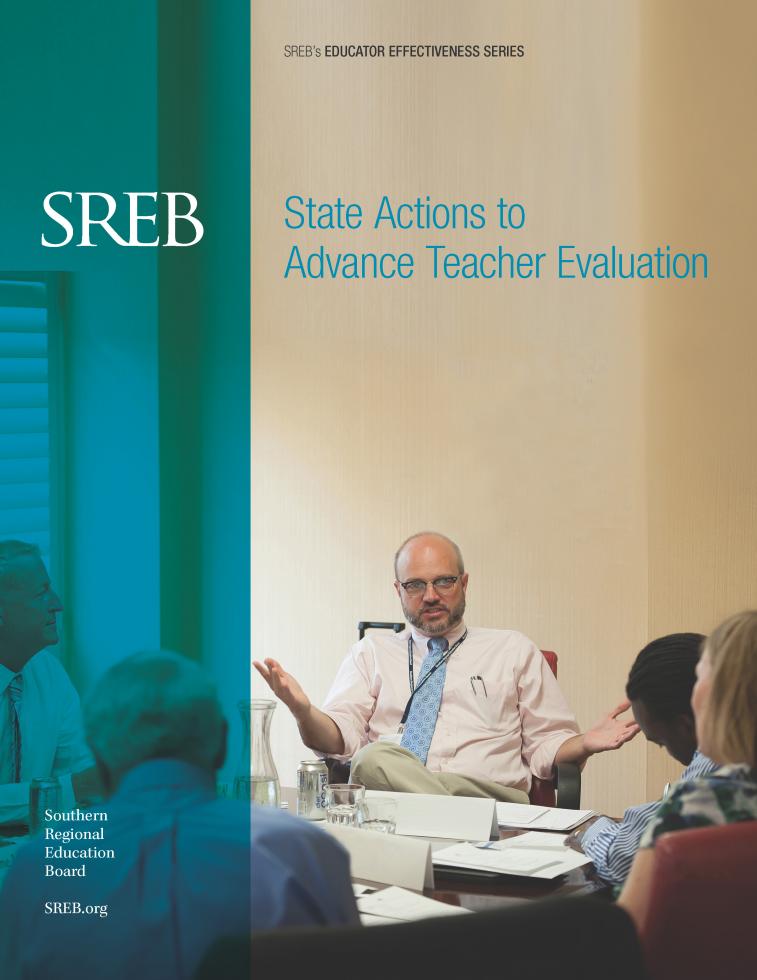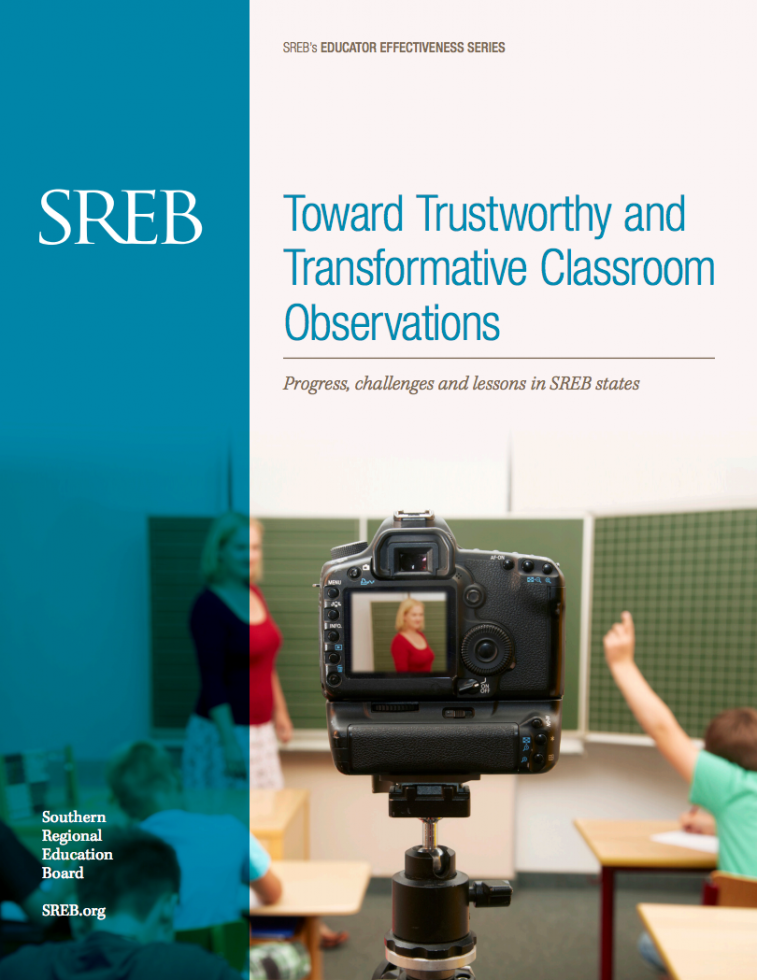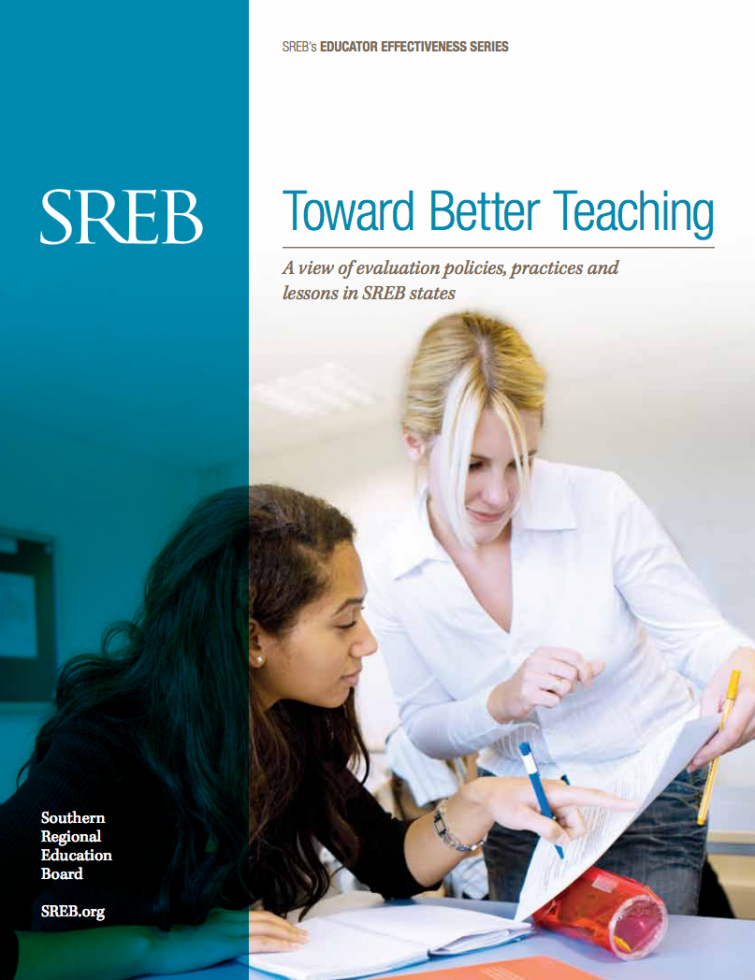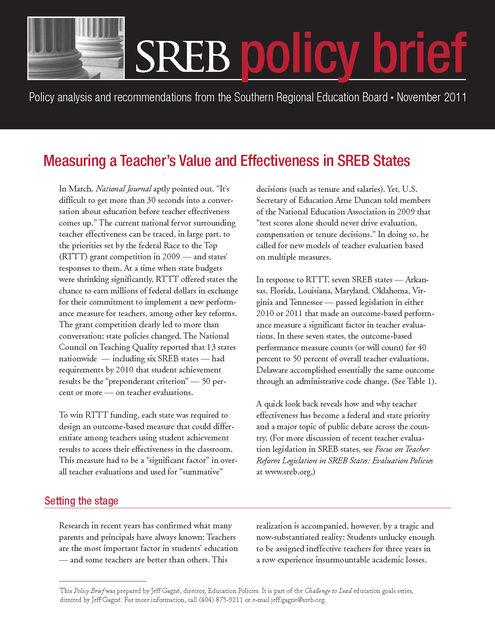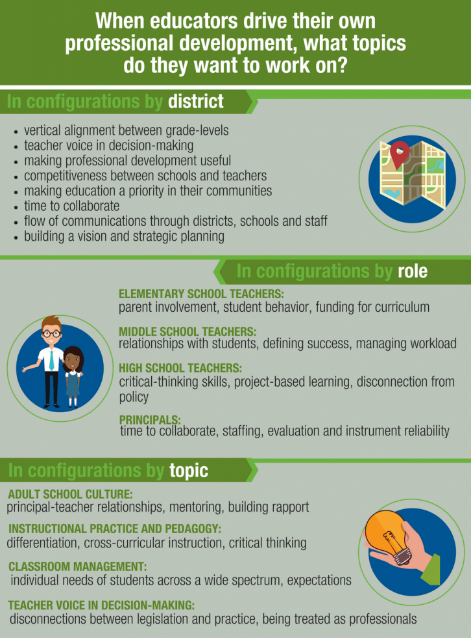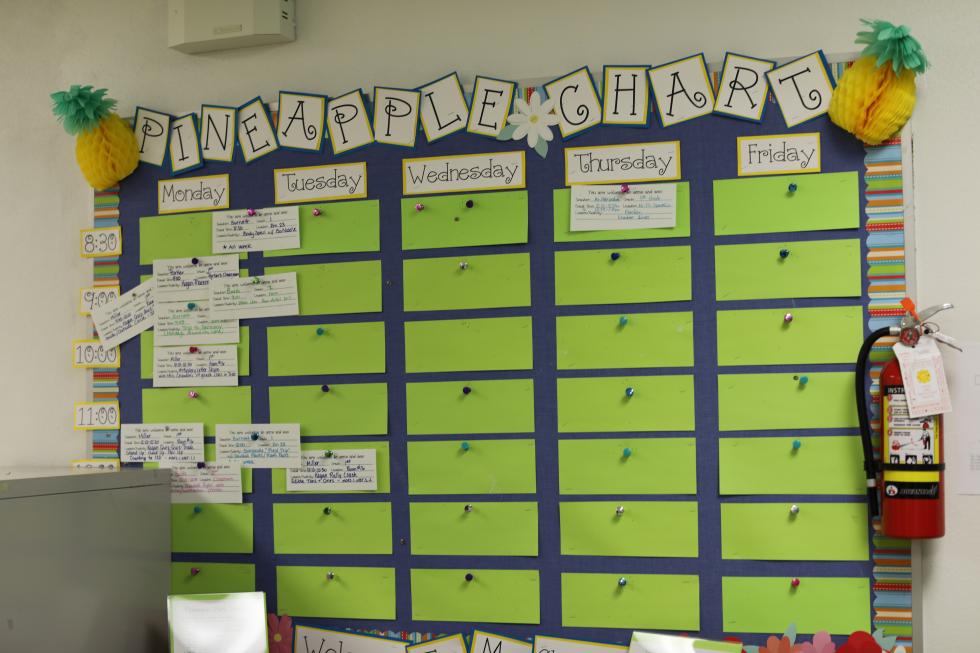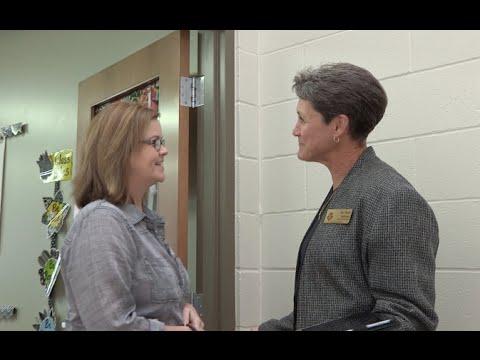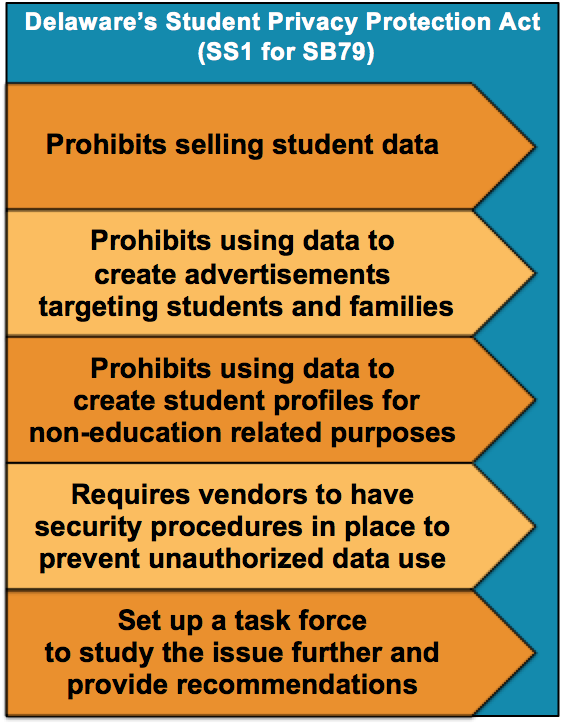Topic: Educator Effectiveness
Educator Support & Effectiveness
Policies to Promote Strong Teaching
The most important thing a school can do for a student’s education is to ensure they have a good teacher. To do this, states and districts need systems and cultures of feedback, evaluation and support that help educators continually learn and grow.
What do strong professional support systems for teachers look like?
- Financially support access to quality professional learning experiences, courses and micro-credentials.
- Help ensure that teachers experience sustainable workloads — for example, adequate planning time and appropriate class sizes.
- Invest in more support staff, such as counselors, nurses and teacher’s assistants. Help districts with successful practices to ensure ample transportation, food service and janitorial staff are employed.
- Be sure districts have the flexibility they need to improve working conditions.
- Supply mentors to all novice teachers in their first three to five years of teaching — including identifying, training, and supporting competent mentor-teachers.
- Provide opportunities for strong teachers to scale and differentiate their roles throughout different stages of their career. For example, strong teachers can maximize and share their talents via teacher-leadership roles in which they support and lead learning communities, employ team-teaching models and become content experts in their school building.
How SREB supports policies that help teachers grow
To help states put more well-prepared teachers in classrooms, SREB designed teacher residency and beginning teacher induction programs for traditional and alternative-certified teachers in career and technical education, science, math, English and social studies. These multi-year programs all include research-based methods to grow four essential teaching skills: (1) instructional planning, (2) engagement strategies, (3) classroom culture, and (4) assessment and feedback. Each program includes intensive professional development and coaching support.
Teacher Labor Markets Trends Before and After the COVID-19 Pandemic
A Literature Review
The COVID-19 pandemic disrupted many aspects of the education system, including teacher recruitment, retention and hiring. More than three years since schools first closed their doors, newly available data and research are beginning to provide insights into the ways that the pandemic changed the landscape of the teacher workforce.
Improving Educator Feedback and Support: Lessons from Eight SREB States
SREB partnered with eight state departments of education from 2015 to 2018 to transform how they supported the professional growth of teachers and administrators. This report summarizes how state departments invested grant funding, the impact of the investments on the states’ strategies and success, and key lessons from the states’ efforts and SREB’s grant process.
Educator Effectiveness is About Learning and Growth Opportunities
And that should never end
Lessons learned from three years of work in 8 states
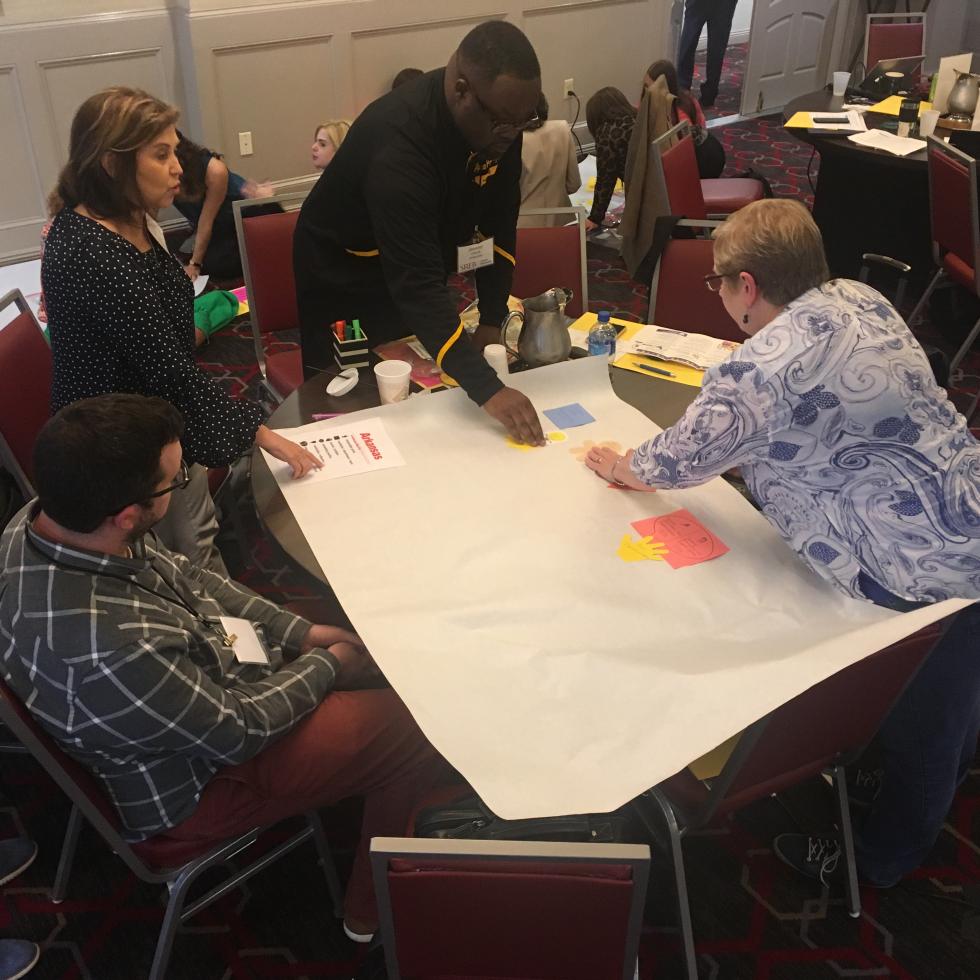 Providing real-time feedback and
growth opportunities to teachers — the real purpose of educator
effectiveness systems — means that school leaders have to
understand and value the skills to be instructional leaders
and be properly trained on those skills. In any career
path, professionals need to know how they’re doing and need help
honing their craft. Teaching is no different; teachers need a
coach, they need feedback.
Providing real-time feedback and
growth opportunities to teachers — the real purpose of educator
effectiveness systems — means that school leaders have to
understand and value the skills to be instructional leaders
and be properly trained on those skills. In any career
path, professionals need to know how they’re doing and need help
honing their craft. Teaching is no different; teachers need a
coach, they need feedback.
In This Together: How States Foster Safe Learning Environments
As legislatures convene regular sessions, we at SREB have observed an uptick in bills focused on school safety. Some propose dramatic changes in the way school districts hire and train security personnel, develop emergency plans, or address students’ mental and emotional health. Others make technical changes to standing laws in order to lower the barriers districts face in creating safe learning environments.
Mentoring New Teachers: A Fresh Look
Three actionable ways for states, districts and schools to support new teachers by meeting the real needs of both novices and mentors
Feedback on Teaching: A Fresh Look
Three strategies for schools to establish and sustain practices that support better feedback and improved outcomes for teachers and students
Student Surveys: A Fresh Look
A guide for states and districts interested in developing educator support for new approaches to student surveys
EVALUATOR TRAINING: A GUIDE FOR STATES
A framework for developing and delivering a high-quality training program for the people who evaluate teachers
What educator evaluation systems and strategies do SREB states use?
What does research say about strategies to improve teacher attendance?
What Research Studies and State Policies Address Incentives to Recruit and Retain Effective Principals?
Snapshot of Major 2016 Legislation
A snapshot of the major educator effectiveness legislation that passed in SREB states in 2016
What Policies Have SREB States Adopted to Address Emergency Teacher Certification?
What do SREB States’ Policies Say About Teacher Certification for Charter School Teachers?
How do States Address the Delivery and Timing of Assessment Results?
Effective Teaching Communities
Lessons from high-needs, high-performing Delaware schools
State Actions to Advance Teacher Evaluation
What will happen to teacher evaluation in your state under the Every Student Succeeds Act?
Toward Trustworthy and Transformative Classroom Observations
A closer look at how states are ensuring observation quality and building a culture of educator support
Toward Better Teaching
A view of evaluation policies, practices and lessons in SREB states
Measuring a Teacher’s Value and Effectiveness
Policy analysis and recommendations for our member states in the aftermath of the 2009 Race to the Top grant competition
Putting TEACHERS Behind the Steering Wheel
Educator Effectiveness Spotlight
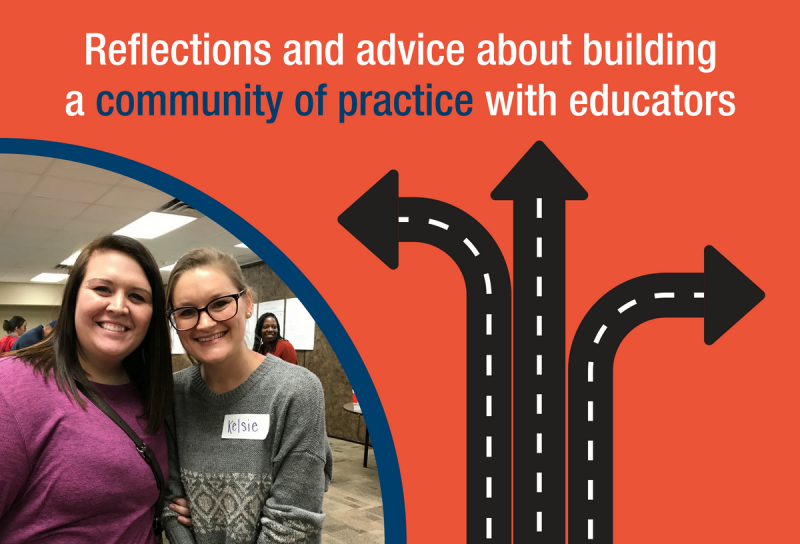 We partnered with leaders and educators from three school districts in Oklahoma to find out what happens when teachers are actually the ones behind the steering wheel. Here’s what we learned about empowering teachers to lead their own professional development.
We partnered with leaders and educators from three school districts in Oklahoma to find out what happens when teachers are actually the ones behind the steering wheel. Here’s what we learned about empowering teachers to lead their own professional development.
School Is My Happy Place
Educator Effectiveness Spotlight

Happy staff. Hardworking students. Supportive parents.
School culture matters. It affects teachers’ morale and instruction, parent engagement, and students’ behavior and learning. Developing and sustaining a positive school culture is hard — but one Florida elementary school has a lot of creative ideas for making it work.
Classroom Time
Educator Effectiveness Spotlight
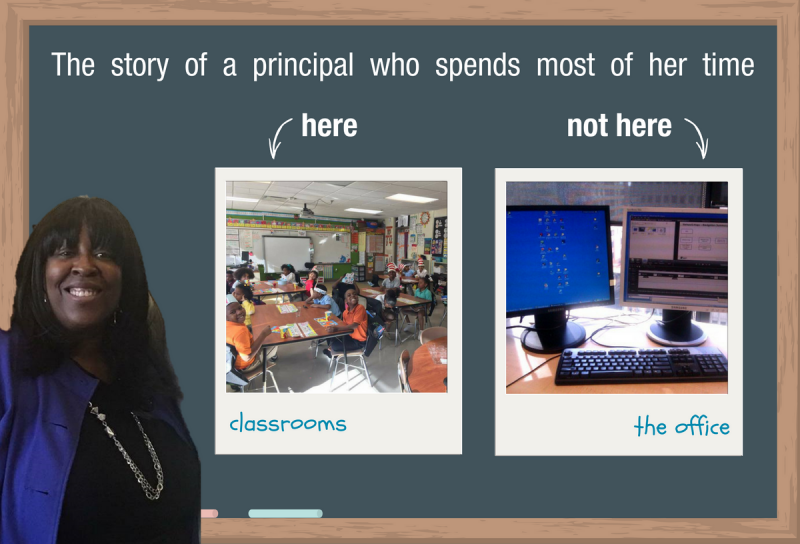 Competing priorities and increasing responsibilities mean principals are finding it harder to spend quality time in classrooms, in addition to formal observations. One Tennessee principal is navigating these challenges in thoughtful and productive ways.
Competing priorities and increasing responsibilities mean principals are finding it harder to spend quality time in classrooms, in addition to formal observations. One Tennessee principal is navigating these challenges in thoughtful and productive ways.
A Kentucky Principal Defines School Leadership
Educator Effectiveness Spotlight
A Kentucky principal returns to her school after a year-long journey supporting her district’s roll-out of a new educator evaluation system. She shares her experiences supporting 22 schools and insights on what it means to be a school leader.
Visible Leadership Goes Far in Supporting Teacher Growth
Educator Effectiveness Spotlight
At an elementary school in rural Arkansas, principal Rocci Malone works closely with her teachers to set year-long goals and monitor their progress in improving aspects of their teaching.
How States Can Get Teacher Evaluation Systems Right
Insights from our partners at Education First
High-quality teacher evaluations are an important component of comprehensive systems to ensure that all students are being taught by effective teachers. From evaluations, districts and states can generate data that can positively impact teachers and students in numerous ways. This is why states have invested so much in them – since 2009, 37 states have updated their evaluation systems – and why they are so important to get right.
The Tale of the Spoon
Closing the Achievement Gap One Utensil at a Time
 The act of teaching is hard — but the ins and outs of being a teacher are hard too. When mentors work on professional growth goals without probing a teacher’s mindset or emotional health, skill development can become distracting, stressful and even counterproductive.
The act of teaching is hard — but the ins and outs of being a teacher are hard too. When mentors work on professional growth goals without probing a teacher’s mindset or emotional health, skill development can become distracting, stressful and even counterproductive.
Adult School Culture
"When a flower doesn't bloom, you fix the environment... not the flower."
I’d like to tell you a story. It’s an important one for all of us who care about public education. I used to teach elementary school. At the end of my first year of teaching, I wasn’t happy with the school where I worked. So, I decided to explore beginning my second year of teaching somewhere else.
Passing the Monday Morning Test
Maryland and Oklahoma Share Insights About the Ins and Outs of Program Implementation
Last month, we shared a run-through of the work by Maryland and Oklahoma to better prepare principals. When I was teaching first grade, many times I participated in professional development sessions that left me bursting with ideas and excitement but left me unsure about my ability to effectively execute what I had learned the next week in my classroom.
Policy Paves the Way
Delaware's Data Privacy Task Force Gets to Work
Delaware is developing educators through the strategic use of pre-service training. Here’s how the state became poised for action:
Tapping Into Talent
Learning From Maryland's Promising Principals Academy
Sometimes it can be difficult to make the transition from knowing to doing when trying to apply concepts to ground-level practice. This often holds true for many kinds of learners – including students, teachers and even states. State education agencies know that principals play an influential role in the development of effective teachers and schools. But how can states build a strong foundation in order to prepare principals for this influential role? Similarly, practitioners can probably agree that in theory, inter-state collaboration yields great potential for learning. So how can they go about actually engaging in it?
Are you my teacher?
Teachers across the SREB region and the nation are wary of the use of student growth scores in their evaluations. How can they know with certainty that their evaluation score is a reflection of how they taught the students in their class?
Tennessee Takes the Temperature
In spring 2014-15, 68 percent of Tennessee teachers reported that evaluation improves teaching in their school and 63 percent said it improves student learning. That is a drastic shift from when Tennessee became the first state to implement a statewide, multiple-measure teacher evaluation system that included a major student growth component in 2011-12. How did they get to where they are now?
Tysza’s Tips for Observing Teachers
This presentation walks through the ups and downs of teacher reflection and growth through classroom observations — and how to make the most of them.
Applying lessons from public health to challenges in education
At our educator effectiveness convening, Emory University professor Dirk Schroeder described the positive deviance approach for studying positive outliers who can inspire solutions to implementation challenges in education.



